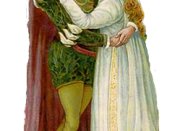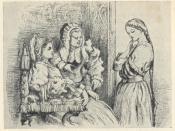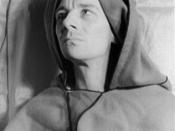By the end of act 3, scene 1 two main characters are dead and another banished, exempting them from most of the remaining part of the play. Act 3, scene 1 is a pivotal point in the play where the plot takes a turn for disaster and tragedy.
In itself this scene is bound to be dramatically effective because of the impact it has on the storyline of the play and it does not happen straightaway, anger and revenge play a large part of Tybalt's desire for a fight; but, how is the effect of the fight that eventually does happen strengthened even further onstage?
Act 3, scene 1 is, for the most part, a fighting scene. On its own fighting is a dramatic device but Shakespeare put other effects into place as well when he was writing this scene but the fighting is my first point. Why? Fighting is actually a dramatic effect, this is because when there is a fight the audience do not know the outcome, creating an ore of tension, to them it's a "Waz' Goanna Happen" scenario.
Another dramatically effective part of this scene is when Romeo originally refuses Tybalts challenge but after Mercutio's death he is eager for the fight; "Either thou, or I, or both, must go with him". I think that this is also important because the audience feel that Mercutio's sense of honour has now affected Romeo as well. Does he want revenge or does he just feel that Mercutio would have? Almost as if he has been spurred into action by his friends' death and not by the whole idea of family honour that is centre point in the play although maybe it's a combination.
I think that it is worth saying that there was (for...


